Search Results
Showing results 1 to 20 of 119
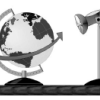
The Geophysical Light/Dark Cycle
Source Institutions
This is an activity (located on page 131 of the PDF) related to sleep and circadian rhythms as well as space travel.
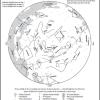
Where Are the Distant Worlds? Star Maps
Source Institutions
This fun hands-on astronomy activity lets learners use star maps (included) to find constellations and to identify stars with extrasolar planets (Northern Hemisphere only, naked eye).

Edible Model of the Sun
Source Institutions
In this activity, learners make "solar cookies," edible models of the Sun's outer layers using sugar cookies and toppings.
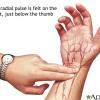
The Pulse of Gravity
Source Institutions
In this astronomy activity (page 3 of the PDF), learners will examine the effects of gravity on a person’s pulse and explore how gravity can differ from planet to planet.
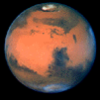
Your Age on Other Worlds
Source Institutions
Did you know that you would be a different age if you lived on Mars? It's true!
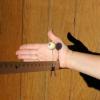
Why Do Eclipses Happen?
Source Institutions
This fun and simple hands-on astronomy activity lets learners create 3D models of the Earth, Moon and Sun to demonstrate solar and lunar eclipses.

Delta, Delta, Delta
Source Institutions
In this experiment, learners construct an equilateral triangle using graph paper, a pencil, protractor and ruler. They also make a "laser triangle" using a laser pointer and front-silvered mirrors.
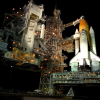
Cosmic Debate
Source Institutions
In this activity described on pages 2-3 of the PDF, participants debate whether there there's life elsewhere in the universe.
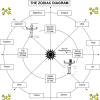
Sky Time: Kinesthetic Astronomy
Source Institutions
Through a series of simple body movements, learners gain insight into the relationship between time and astronomical motions of Earth (rotation about its axis, and orbit around the Sun), and also abou
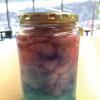
Nebula in a Jar
Source Institutions
In this activity, learners will build a model of a nebula using cotton balls and colored water. Astronomers photograph nebulas and add colors to provide information about the nebula's composition.

Crash Landing!
Source Institutions
In this activity, groups cut out and sort cards showing items recovered from a crash landing on the Moon. The 12 items range from food and water to rope and matches to a self-inflating life raft.
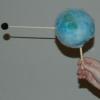
Exploring Strange New Worlds
Source Institutions
This fun and simple hands-on astronomy activity lets learners explore model planets (that they or an educator will create), using methods NASA scientists use to explore our Solar System.
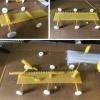
DIY Pasta Rover
Source Institutions
In this activity, learners design and build a NASA rover using raw pasta and candy with a limited imaginary budget.
Pósteres Sobre el Espacio y Matemáticas
Source Institutions
Exponga estos pósteres en el salón o déjelos donde los chicos los puedan explorar. Los chicos buscan las respuestas en línea, en libros de consulta, y en calendarios y almanaques.
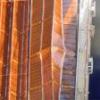
Folding Matters
Source Institutions
In this activity, learners explore how the process of folding has impacts on engineering and is evident in nature.
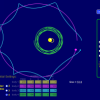
My Solar System
Source Institutions
In this online activity, learners build their own system of heavenly bodies and watch the gravitational ballet.
Finding the Right Crater
Source Institutions
This quick demonstration (on page 11 of PDF) allows learners to understand why scientists think water ice could remain frozen in always-dark craters at the poles of the Moon.
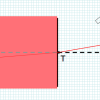
Super Gelatin
Source Institutions
Can gelatin (like Jell-O ®) change the speed of light?
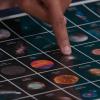
Exploring the Universe: Space Guess Quest
Source Institutions
Space Guess Quest is a fun game that encourages participants to identify the many types of objects in space, from human-made spacecraft to nebulas, galaxies, stars, and worlds.
The Earth's Timeline
Source Institutions
In this group activity, learners will mark important developments of life on Earth on a timeline (each foot in length representing 200 million years).
